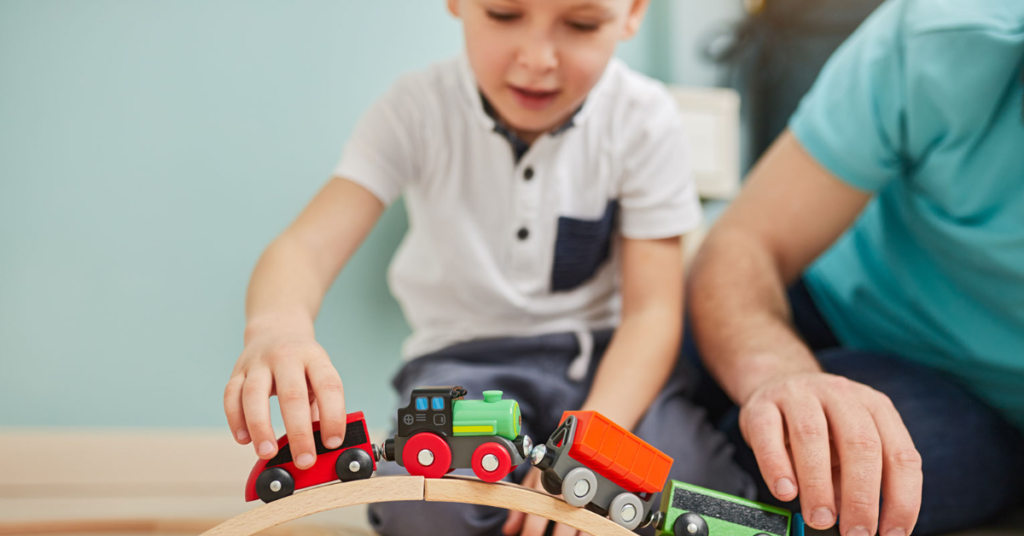
There is a rise in mental health issues among our younger populations. Children are very vulnerable due to their constantly developing brains, making their mental health very critical. Children who struggle with mental health issues may have difficulty forming relationships, performing in school, developing coping skills, expressing emotions appropriately, dealing with hard things, etc. If left untreated these can have life-lasting effects on a child. Fortunately, there are many resources out there to help a child work through their mental health issues in a way that they understand.
Children Express Emotions Differently Than Adults
Children communicate and display their feelings in very different ways than adults. Traditional “talk therapy” is not going to work or be as effective for a child who is still developing and learning how to use their emotions. Talking to them like adults and expecting them to communicate back, in the same way, is absurd. This is why play therapy is such a unique approach that uses play to help children express their emotions and work through difficulties. It is a type of therapy that is most effective for children between the ages of 3 and 12.
Play Therapy Can Help Children Communicate
Through play, children can communicate in ways that feel natural to them. For example, there was a time I was playing with a child. We were talking about our favorite animals and what each of us would be. The child had concluded that they would want to be a cheetah so they could be fast. As we continued to play the child expressed that cheetahs could run away from any person. Although this may typically be a comment that is looked past, for this child we discovered that they needed to run fast because of some past trauma resulting in fears. Being able to run fast was their idea of fixing their fears. Through simply communicating through play the child was able to make this connection.
There are Different Types of Play Therapy
There are many different types of play therapy. Some approaches may involve toys, board games, or art. While others may be more structured and use storytelling or role-playing. This is one of the cool things about play therapy, it can be adapted to meet the needs of a child. For example, a child struggling with the expression of emotions may benefit from play therapy that helps them learn how to identify emotions while providing them with techniques to cope. On the other hand, a child who has been through a lot of trauma may need play therapy that’s more structured allowing them to work through their feelings in a supportive environment. Play therapy will look different every time, and that’s the best thing about it.
Overall play therapy can be a very powerful approach for children. Addressing mental health issues early on can help prevent more severe problems down the road. If you notice your child struggling or are concerned about their mental health call to schedule an appointment and ask about play therapy. By taking care of your child’s mental health you are supporting them in living a happy, healthy, and fulfilling life.
Play Therapy in Draper, Park City, and Lehi
If you are interested in Play Therapy for your child or children, Call or Text us today at 801-277-6851 or Contact Us Online.